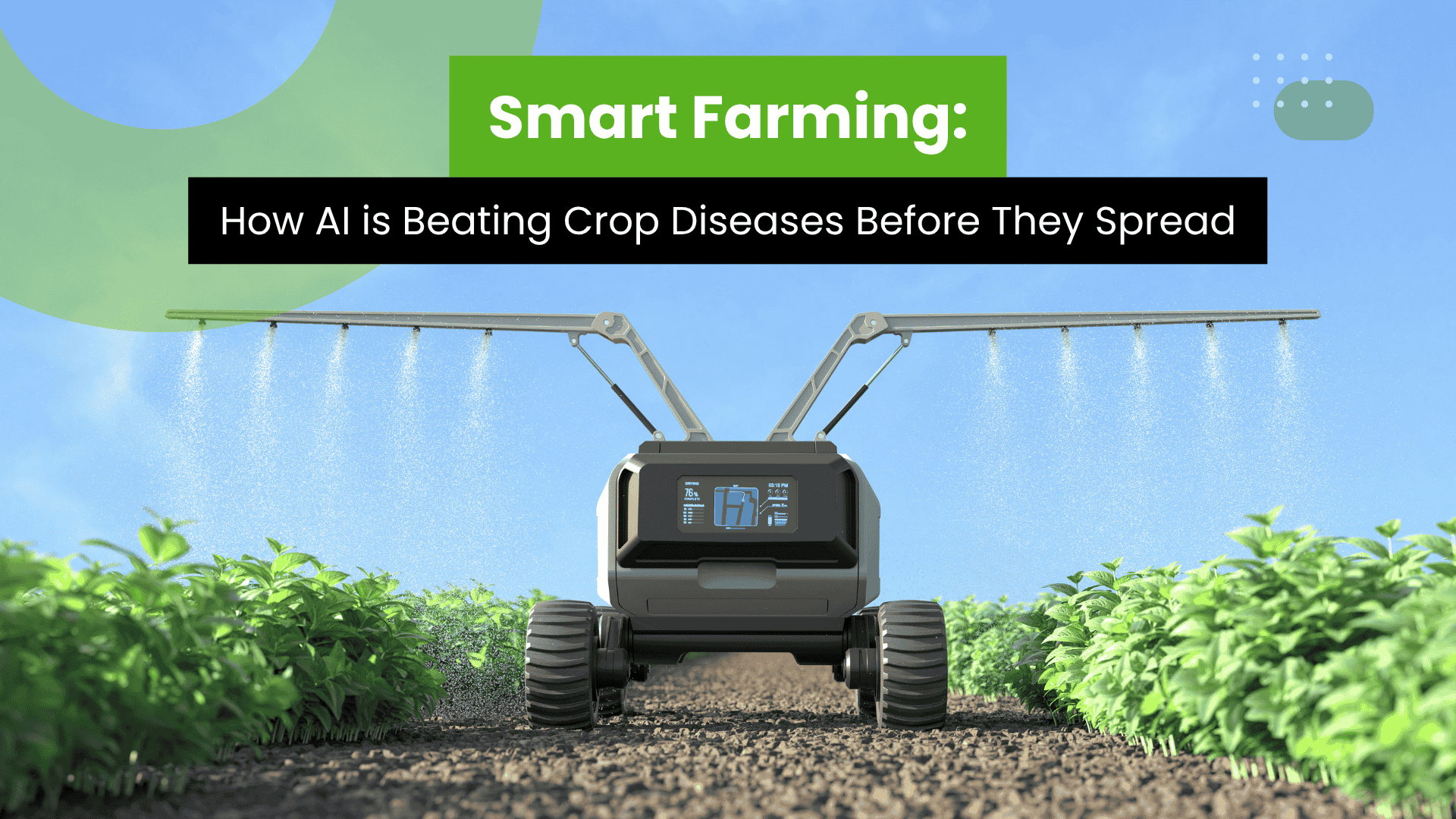
In recent years, Artificial Intelligence (AI) has emerged as a game-changer in the agricultural sector, particularly in the area of crop disease prediction. Traditionally, farmers relied on visual inspections, local expertise, and sometimes guesswork to identify and manage crop diseases. While effective to a degree, these methods often led to delayed responses, resulting in significant crop losses and increased pesticide use. AI is transforming this approach by offering real-time, data-driven solutions that are not only faster but also more accurate.
Case Study: IBM’s Watson and NITI Aayog’s Collaboration in India
In 2020, IBM partnered with NITI Aayog, the Indian government’s policy think tank, to launch an AI-based crop advisory service for farmers in Maharashtra, Gujarat, and Madhya Pradesh. The initiative aimed to combat pest-related losses in cotton farming using IBM’s
Watson Decision Platform for Agriculture. Farmers received localized alerts on their mobile phones, advising them on when and how to take preventive measures against potential pest attacks. The platform collected and analyzed data from satellite imagery, weather forecasts, and on-ground sensors. AI algorithms identified patterns in soil moisture, temperature, and humidity that might encourage pest outbreaks—such as the pink bollworm, a common threat to cotton crops.
The results were notable. Farmers using the AI service reported up to a 20% reduction in pesticide use and an increase in crop yields.
“The AI alert came just in time. I used the recommended pesticide exactly when needed, and it saved nearly half of my cotton crop. I didn’t just save my harvest — I saved money too.” — A cotton farmer from Gujarat
AI Tools Empowering Farmers Globally
The success of IBM’s pilot reflects a growing global trend. AI systems are now capable of detecting subtle changes in plant health—often before visible symptoms appear. This early detection enables preventive measures, significantly reducing both crop loss and pesticide use.
One standout example is Plantix, a mobile app by Berlin-based startup PEAT. The app uses machine learning to diagnose over 500 plant diseases. Farmers simply upload a photo of a diseased plant, and the app instantly identifies the issue and recommends a solution. Widely used in India, Brazil, and the U.S., Plantix has become an essential tool for smallholders worldwide.
Another innovation,FarmSense, uses AI-powered sensors to monitor insect activity in real time. By identifying pest patterns, the system provides farmers with timely alerts, helping them act before infestations spread.
AI in Agricultural Research and Beyond
Beyond commercial tools, academic institutions are pushing AI innovation further. For example, researchers at the University of Illinois developed a deep learning model that identifies soybean diseases with up to 95% accuracy. By analyzing thousands of plant images, the model detects threats like brown spot and frogeye leaf spot faster than traditional scouting methods. Similar approaches are being explored for other staple crops, boosting food security prospects globally.
Companies like Microsoft are also investing in AI to forecast yields and recommend optimal planting schedules, further empowering farmers with data-driven decision-making tools.
Conclusion: A Smarter, Safer Future for Farming
AI is proving to be a powerful ally in the fight against crop diseases. From mobile apps to smart sensors and predictive models, technology is equipping farmers with the tools they need to act swiftly and sustainably. By enabling earlier interventions and reducing chemical reliance, AI not only improves productivity but also supports a more environmentally responsible form of agriculture.
As climate challenges intensify and global food demand rises, AI will continue to play a vital role in building a smarter, more resilient agricultural future.
AgriNext 2025 will further amplify the momentum of agri-innovation by bringing together global leaders, startups, and researchers . As a premier platform focused on digital transformation and sustainability in farming, the event will spotlight advancements in AI, precision agriculture, and smart technologies—reinforcing the vital role of innovation in shaping the future of agriculture.
Signup For AgriNext Conference Newsletter


